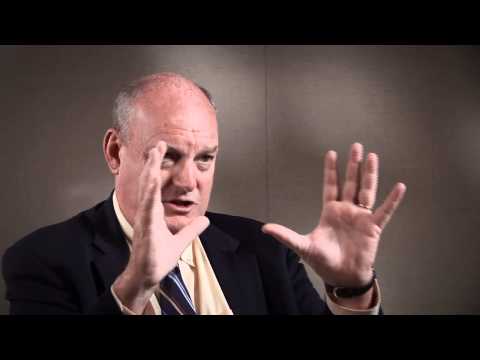The first is that a traumatic brain injury–yes, it is a big public health problem. It happens to million Americans a year. The majority of these are mild traumatic brain injuries and are probably under-reported because people don’t get them in to be seen. The human brain is a wonderful organ that has an enormous amount of plasticity, and you never want to give up on a head-injured patient. Even though they may not be able to be the Einstein that you thought that your young one was going to be, the public needs to understand that these people have great potential and you need to have patience with them. They may have emotional problems to begin with that will resolve over time, that will get better over time.
We have told everybody for years that recovery of function after traumatic brain injury occurs during the first 6 months, and then after that you don’t get anything, after that. That’s completely not true. Recovery occurs for the rest of your life. It may not go the leaps and bounds that you want it to go, but it recovers for the rest of your life. There is no official compound, drug, or definitive treatment that people would agree to across the United States to cure traumatic brain injury. What we have is we have rehabilitative medicine, and even if rehabilitation is just retraining how to do things, this is an enormous asset that we should take advantage of. And in the United States, the public are very resistant to giving that opportunity to people, primarily because these people are young and they’re uninsured and they become a great cost on society.
But if they’re given the opportunity to where they can be placed in a rehabilitative center for an extensive period of time to train them up, to learn how to be independent, to be able to have a new set of coping skills that they have to learn, they can continue to contribute to society and not be a burden on it. So from a public point of view, it’s this perception that this is a crippled individual, mentally crippled individual, and this is something we need to give up on. No, don’t give up on it–recovery occurs for the rest of your life–and give these people the types of treatment that they deserve. From a medical point of view, the brain has always been a very complicated organ.
And you start to think about–I remember a physician telling me it’s silly to try to figure out what happens after brain injury because it’s sort of like when the towers went down in New York on 9/11. What happens is that everything gets destroyed, and what you’re measuring or what you’re looking at is just the dump trucks taking the garbage away.
And that analogy stuck with me, and I thought–you know–that is somebody who is hopeless, who doesn’t understand the potential, that it isn’t all over at that time. There’s a whole city here of New York. You just took out a couple of towers. And, yes, it was a devastating event, but what happens after that is what’s more important in how you can restructure it. It is a very complicated thing to study. It is something that doesn’t pay well. You go in the middle of the night to take out a subdural hematoma. You get called on a Friday night, a Saturday night. Head injuries don’t happen at 10 o’clock in the morning on a Monday. So it is a very big, taxing event for a physician to be involved in this type of work. But I would argue it is–and I’m biased, of course–but I think it’s one of the most rewarding things I’ve ever done in my life, and I would encourage more physicians to do that..
